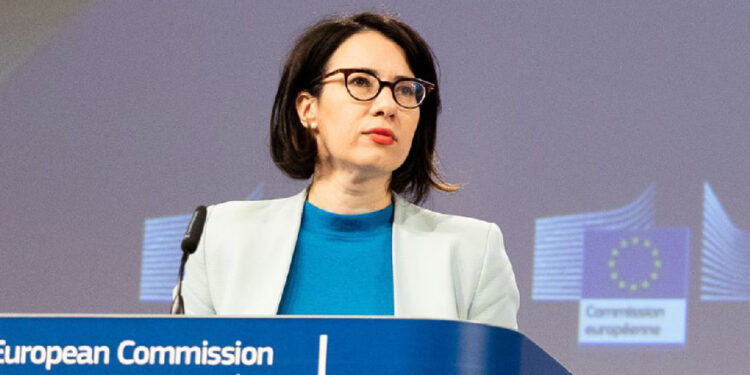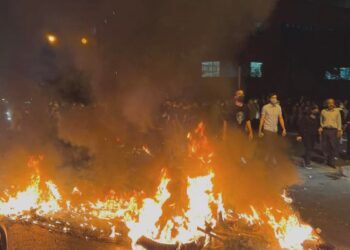The politically motivated persecution and arrests of opposition leaders go against basic democratic values – wrote Anitta Hipper, Spokeswoman of the European Commission for Foreign Affairs and Security Policy, on social media.
She said that Georgian Dream must end the misuse of the judicial system for political purposes.
“These are authoritarian tactics, opposite of what is expected from an EU candidate country. Georgian Dream must stop weaponizing the justice system,” Hipper added.
A wave of arrests targeting prominent opposition leaders has sparked widespread outrage and mass protests across Georgia, as critics accuse the ruling Georgian Dream party of deepening authoritarian practices ahead of the 2025 presidential elections.
Over the past month, at least six high-profile opposition figures have been sentenced or detained for defying a parliamentary commission investigating the presidency of Mikheil Saakashvili, Georgia’s exiled former leader. The opposition claims the commission serves as a political weapon designed to silence dissent.
On June 23, the Tbilisi City Court sentenced Mamuka Khazaradze and Badri Japaridze—co-founders of the Lelo for Georgia party—to eight months in prison each for refusing to testify before the commission. Both were also barred from holding public office for the next two years. Zurab Japaridze, leader of Girchi – More Freedom and a member of the Coalition for Change, received a seven-month sentence on similar charges.
Just one day later, on June 24, Giorgi Vashadze, the leader of the Strategy Agmashenebeli party, was also sentenced to eight months in prison for contempt of the commission. Law enforcement officers detained him immediately after the verdict was announced.
These convictions follow earlier arrests in May. On May 22, Zurab Japaridze was detained in court for refusing to pay bail and comply with the commission’s summons. A week later, on May 29, Nika Melia—a key opposition figure and former chair of the United National Movement—was also placed in pre-trial detention. Melia was charged with insulting law enforcement and failing to meet bail conditions.
Former Defense Minister Irakli Okruashvili, another vocal critic of the ruling party, was also arrested in mid-May under similar circumstances.
The Georgian government insists that the legal actions are a matter of upholding the rule of law and enforcing parliamentary authority. However, local and international watchdogs have condemned the arrests as politically motivated. Opposition supporters have staged nightly rallies outside the Parliament building in Tbilisi, demanding the release of what they describe as political prisoners and calling for snap elections.
“This is a full-scale political crackdown,” said Elene Khoshtaria, an opposition MP. “They are trying to destroy every voice that challenges their authority.”
The ongoing crisis has drawn sharp criticism from the European Union and the United States. Brussels has warned that the Georgian government’s recent actions threaten to derail the country’s aspirations for EU membership.














